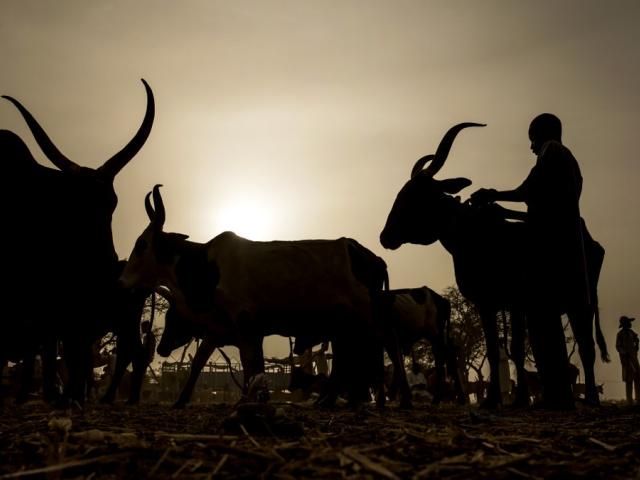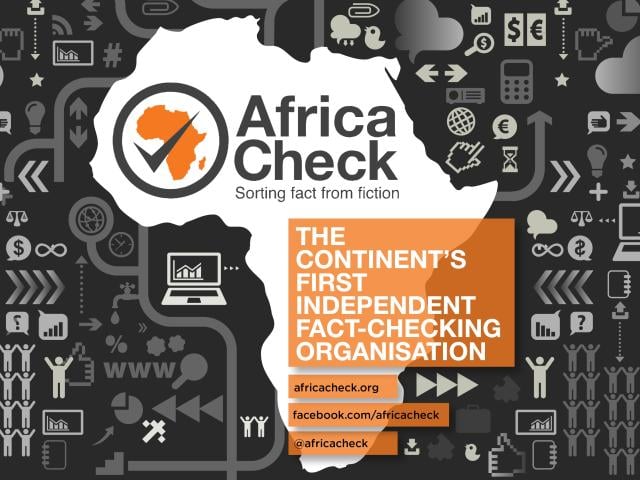-
The national newspaper was mostly correct in its depiction of what it termed the “dire” state of education in Nigeria, including the “paltry” percentage of the federal budget allocated to education.
-
The paper also accurately reported that only around 61% of Nigerian children who should be in primary school regularly attend and as few as 35% of three-to-five-year-olds receive any formal early childhood education.
-
But the newspaper was wildly off the mark when it reported the trillions of naira allocated to education from 2016 to 2021 – N55.3 trillion compared to the actual number of N3.7 trillion.
To mark this year’s International Day of Education, Nigeria’s Business Day newspaper turned the spotlight on learning in the country.
In a largely scathing February 2022 editorial, the publication, which circulates in Nigeria and Ghana, made several claims, including about funding, attendances and the number of out-of-school children.
We checked six of the claims.
The newspaper claimed that from 2016 to 2021, it was “reported” that Nigeria’s government allocated N55.3 trillion to the education sector.
We sent an email to Business Day asking for the source of their data and to clarify some of the claims. We will update this report with their response.
Documents from the Budget Office of the Federation, however, show far less than this amount was set aside for education in this period.
The figures cover statutory transfers under the country’s universal basic education (UBE) programme, in addition to recurrent and capital expenditure allocations by the education ministry and its affiliated agencies.
The first nine years of education in Nigeria are free and compulsory and are funded under the basic education programme.
The table below shows the funding budgeted for the six years under review.
The total allocation to education in the six years added up to N3.70 trillion, a fraction of what the paper claimed.
The paper’s N55.3 trillion figure is actually closer to the country’s total budget for the six years, which was N56.92 trillion.
We therefore rate this claim as incorrect.
Business Day went on to say that less than 10% of the N55.3 trillion it claimed had been budgeted for education was eventually spent on the sector.
It gave this figure as N3.5 trillion, suggesting a gulf between what was budgeted and what was eventually released.
Budget implementation documents for the years of interest suggest otherwise. They show that for each of the years from 2016 to 2021, 100% of the amounts earmarked for the UBE programme were released.
The share of the capital budget released also exceeded 50% in all the years, rising to more than 100% in 2020.
The percentage of the education budget released to the sector was significantly more than 10%.
The editorial said the education sector’s share of Nigeria’s 2022 budget was 7.2%. This works out to N1.23 trillion, of a total of N17.13 trillion.
It said that an international agreement in 2021 committed countries to spend at least 15% of public funds on education.
The available data shows that the budgetary allocation to education in 2022 is in fact slightly lower.
The 2022 appropriation act published by the Budget Office of the Federation shows that N593.47 billion was allocated to the education ministry and its agencies for recurrent expenditure, and N159.66 billion for capital projects.
N112.29 billion was also earmarked for basic education and N306 billion to the Tertiary Education Trust Fund.
This adds up to N1.17 trillion, or 6.83% of the total budget.
However, finance minister Zainab Ahmed’s public presentation of the approved 2022 budget had the total allocation to education as N1.23 trillion, which is 7.2% of the total budget – what the paper claimed.
The disparity was because the budget presentation document gave a total of N815.69 billion while the figures in the appropriation act added up to N753.13 billion. But the paper’s overall argument of low funding holds, as analysts told Africa Check.
Inadequate funding severely affects teacher morale
The continuously poor funding of education has “grave implications” for the country, according to Comfort Edemenang. He is professor of educational administration and planning at the Abubakar Tafawa Balewa University in Bauchi, northeastern Nigeria.
He gave universities as an example. “Sometimes there is no power or water supply for several days. There is poor infrastructure and both lecturers and students are demoralised. Many want to go abroad.”
Nigeria’s education indices from primary to tertiary level are poor, Sidiqat Ijaiya, professor of education management at the University of Ilorin in northern central Nigeria, told Africa Check.
He also linked this to the inadequate funding of education. “A major impact is poor infrastructure. Due to the lack of basic laboratory equipment, we do alternatives to practicals in secondary schools. There is also a lack of equipment in universities.”
Lecturers struggled to remain motivated and often downed tools, Ijaiya said. In February 2022 lecturers went on strike, with better funding of universities one of their demands.
“It’s not just about increasing lecturers’ pay, it’s about infrastructure and teaching aids,” Ijaiya said.
We traced this claim to a November 2021 press release by the Nigeria office of the United Nations Children’s Fund (Unicef). But the statement didn’t include the number of schoolchildren killed in the 25 attacks.
We found a death toll of 16 in an earlier Unicef press release, dated 16 September 2021.
“So far this year, there have been 20 attacks on schools in Nigeria, with 1,436 children abducted and 16 children dead. More than 200 children are still missing,” it said.
The numbers were from geopolitical intelligence firm SBM Intelligence, said Folashade Adebayo, a spokesperson for Unicef Nigeria.
“In their methodology, they utilise a dual approach. Firstly, they work within a research network that collates information on school attacks in the course of tracking electoral violence and other indicators. Then whatever report is collected is independently verified. Only verified information is reported,” Adebayo said in an email.
She said “17 learners were reported to have lost their lives in 2021” and there was a possibility some attacks went unreported.
A December 2021 report by human rights organisation Amnesty International described some of the attacks on schools and schoolchildren in Nigeria in 2021.
The report stated that over 780 were abducted for ransom in 2021 and over 61 were still in captivity months after their abduction. It however provided no death toll. But there’s little doubt insecurity is a challenge to learning.
Various sources give estimates of the country’s primary school net attendance ratio. This is the percentage of the school-age population that attends primary or secondary school.
-
The Multiple Indicator Cluster Survey 2016-2017 showed that 60.9% of children of primary-school age in Nigeria were attending school.
-
The Nigeria Demographic and Health Survey 2018 put the primary school net attendance ratio at 61%. It was 59% for girls and 62% for boys. This survey sampled children between ages six and 12. (Note: The country’s official primary school age is six to 11 and older.)
The Nigeria Living Standard Survey 2018-2019, which was conducted between September 2018 and October 2019, found the primary school net attendance ratio was 65.8%. Over 22,000 households were surveyed by the National Bureau of Statistics with the support of the World Bank.
On this score, the newspaper was correct based on the most recent nationally representative data on access to early childhood education.
The Multiple Indicator Cluster Survey 2016-2017 showed that 35.6% of children between ages 36 and 59 months attended an early childhood education programme. (This is children between the ages of three and five years.)
This indicator varied widely across states in Nigeria. It was as high as 97.1% in Ekiti (South-West) and 94.7% in Enugu (South-East) and as low as 4.4% in Yobe (North-East) and 4.6% in Sokoto (South-West).
Neither the Nigeria Living Standard Survey 2018-2019 nor the Nigeria Demographic and Health Survey 2018 had data on access to early childhood education.
Folasade Sulaiman is a professor of early childhood education at the Tai Solarin University of Education, in Ijagun, southwestern Nigeria. She said the percentage may not have increased since 2017.
“A lot of parents are still not convinced they need to put their three-year-olds in preschool. It became worse with the attacks on schools, especially since 2019. Some of the schools are shut in the north, and in some cases, parents have withdrawn their children from school because it’s no longer safe.
More public awareness on the importance of early schooling was required, she said.
Some previously checked claims
The newspaper also repeated claims relating to the rate and number of out-of-school children in Nigeria, which we have covered in previous fact-checks.
The most far-reaching of the claims, that “about 10.5 million of the country’s children aged 5 to 14 years are not in school”, is neither recent nor correct.






Add new comment